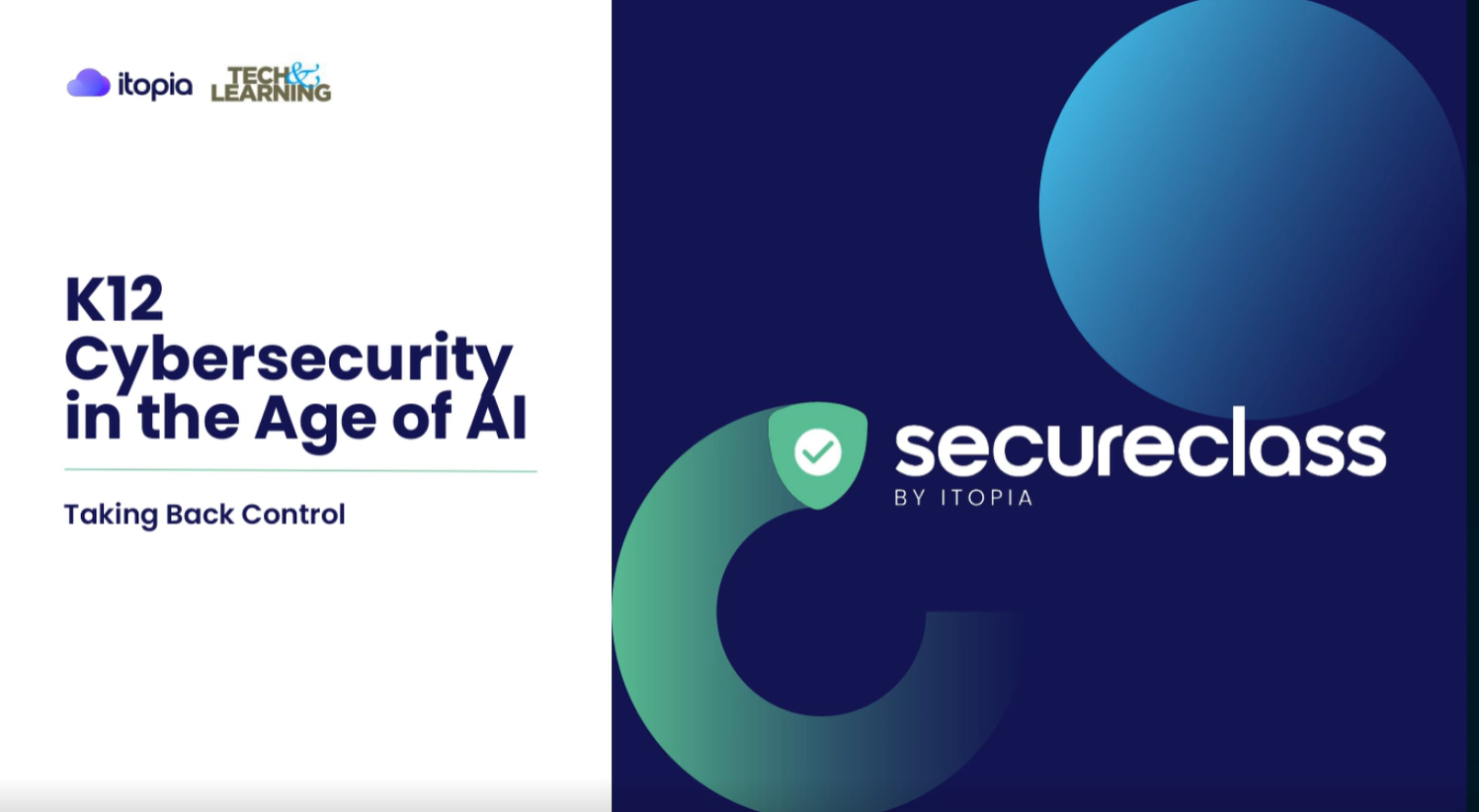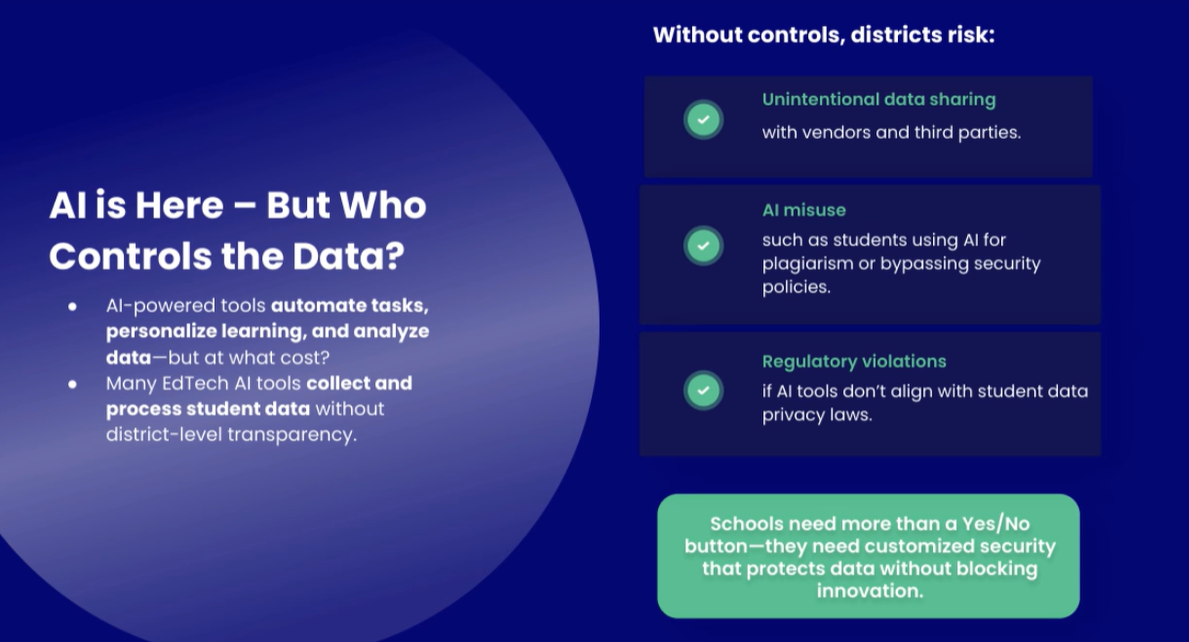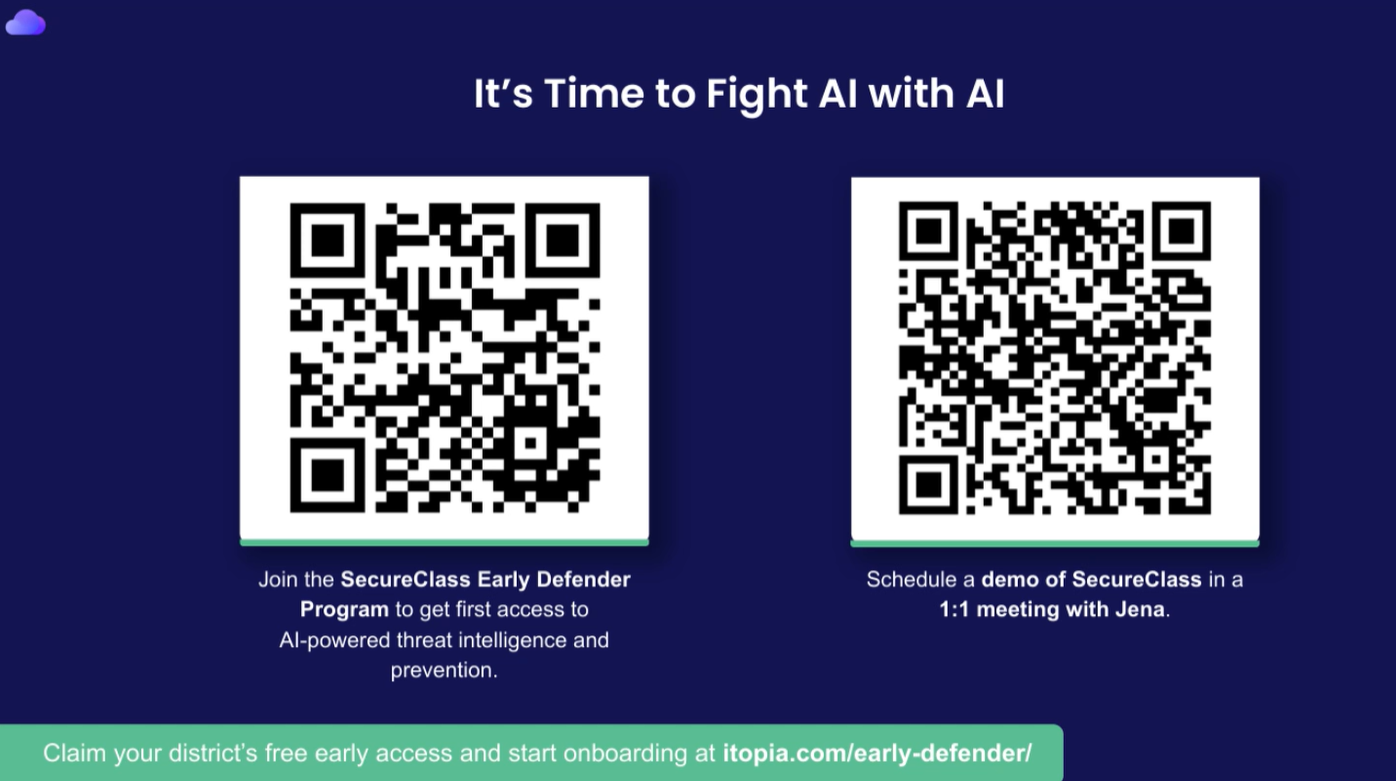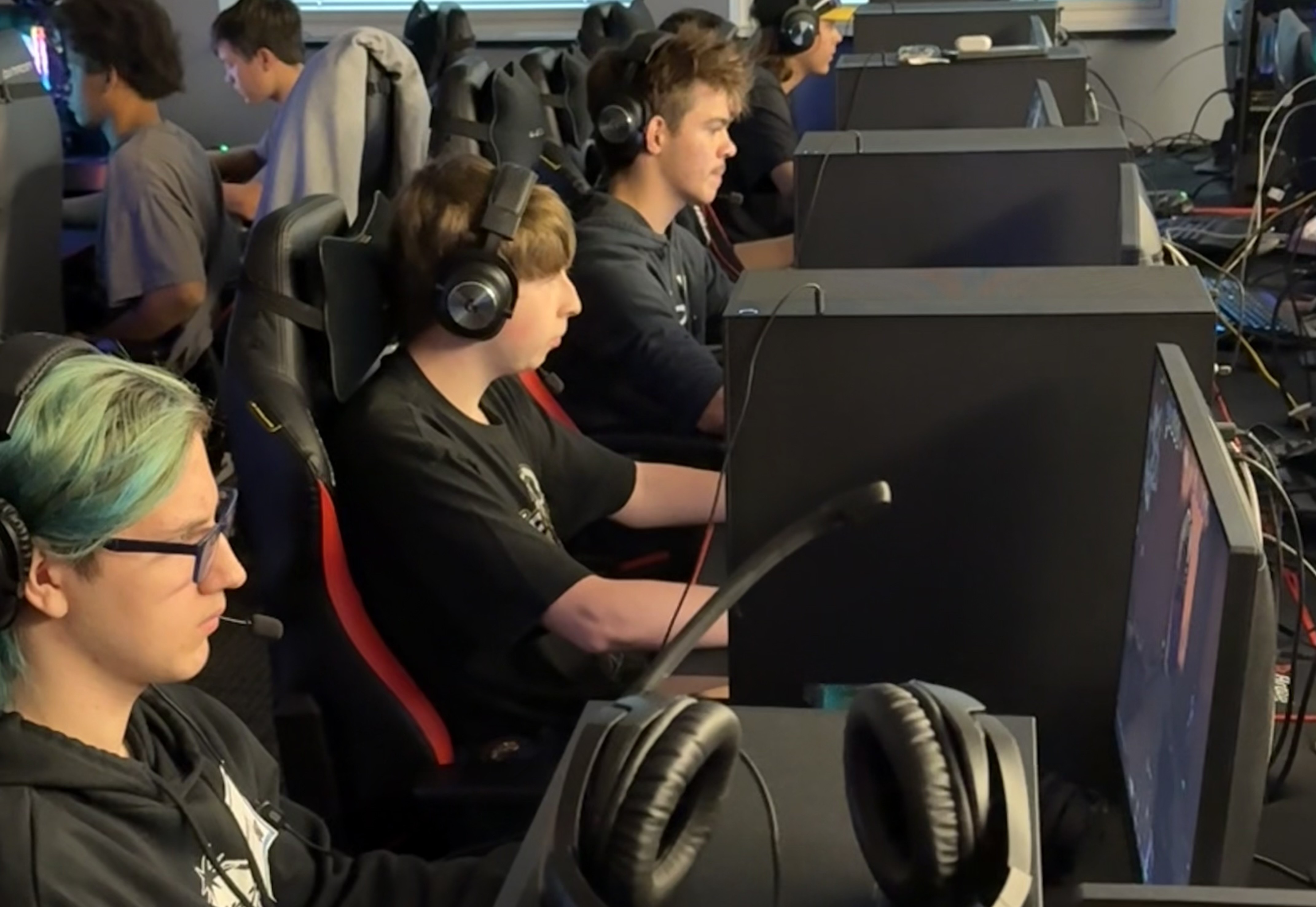K-12 Cybersecurity in the Age of AI: Taking Back Control
How districts can take charge of their cybersecurity strategy

AI isn't just a buzzword, and K-12 cybersecurity isn't just about blocking threats; it's about securing data from AI-driven risks while ensuring districts retain full control. As AI adoption grows, schools must take control to prevent misuse, protect data, and enforce accountability through technology, without adding complexity.
Sponsored by itopia, this webinar, which took place on April 8, 2025, explored how districts can take charge of their cybersecurity strategy, ensuring proactive threat prevention, responsible AI adoption, and total data control, with a platform such as itopia’s SecureClass. With fully customizable access controls, SecureCless helps you determine exactly what's allowed, down to the details.
Hosted by Tech & Learning’s Content and Brand Director Christine Weiser, the discussion featured Kyle Berger, Chief Technology Officer at Grapevine-Colleyville ISD, and Jena Draper, Chief Innovation Officer at Itopia.
Key Takeaways
AI Adoption and Cybersecurity Risks: AI is rapidly being adopted in education, far exceeding that of previous technologies such as the internet or social media, however, this growth brings increased cybersecurity risks. Schools need to secure data from AI-driven threats and maintain control over their systems. “Tools have now embedded AI into their platform, sometimes with us knowing it and accepting those terms, and sometimes without us accepting or knowing those terms,” said Draper. “It has created this extreme risk for us." This necessitates continuous review and adaptation of cybersecurity strategies.
Balancing AI Adoption and Security: "AI is going to be embedded in jobs that are existing today,” said Berger. “Jobs that have always been around are adapting." Consequently, schools cannot simply block AI due to its increasing importance in preparing students for the future workforce. Instead, they must find ways to enable AI use while mitigating risks.
Threat Landscape: The threat landscape is evolving, with bad actors increasingly using AI for malicious purposes. Schools need tools and strategies to defend against these advanced threats.
Tools and ideas to transform education. Sign up below.
Data Control: A significant focus for schools and AI should be data control. “It just comes down to what data can be shared with that AI tool, right?” said Draper. “If I'm just typing in silly things about cats or something, it doesn't really matter. But if I'm starting to put my personal information in there, whether it's knowingly or unknowingly, then that's what creates the risk.” To that extent, Itopia's SecureClass allows schools to control what data can be shared with AI tools, such as blocking copy/paste, uploads/downloads, and camera/microphone access.

Chromebook Security: A misconception exists that Chromebooks are inherently secure. However, as their use increases, so does the risk. “It's not just students that are using these devices anymore,” said Berger. “The more usage you see, the more targets and threat actors are gonna start trying to find ways to get to it.” Ensuring that your cybersecurity protection works for all devices is critical.
Fighting AI with AI: The webinar emphasized the need to use AI to fight AI threats. “We've got a massive database of over 8 billion endpoints, and we're watching these threats as they are suspicious events so that they don't become problematic for you in the future,” said Draper. “So anytime a URL has any kind of suspicious activity, we go ahead and block it with our extension in real time, and we unblock it proactively as we get information that allows us to feel that that is no longer a risk to you. So we've blocked over 18 million websites in just the last 90 days for suspicious activity around malware and phishing. This is no easy task. But securing AI and then using AI to secure it is all part of what SecureClass's underlying mission is.”

Ray Bendici is the Managing Editor of Tech & Learning and Tech & Learning University. He is an award-winning journalist/editor, with more than 20 years of experience, including a specific focus on education.
